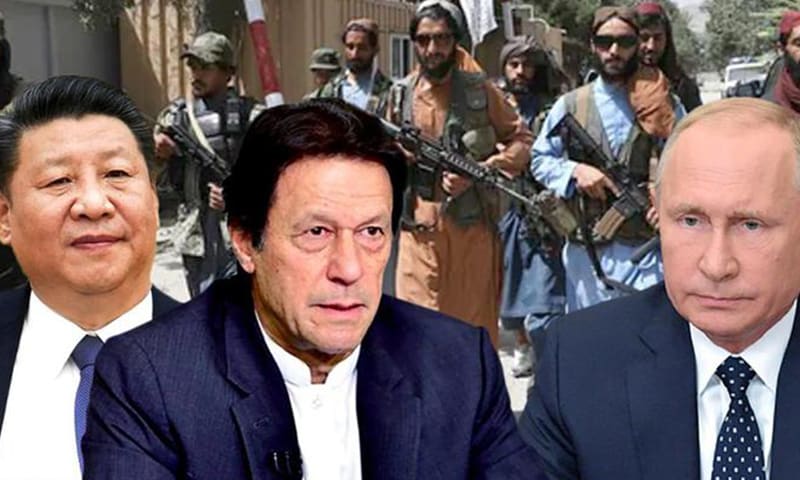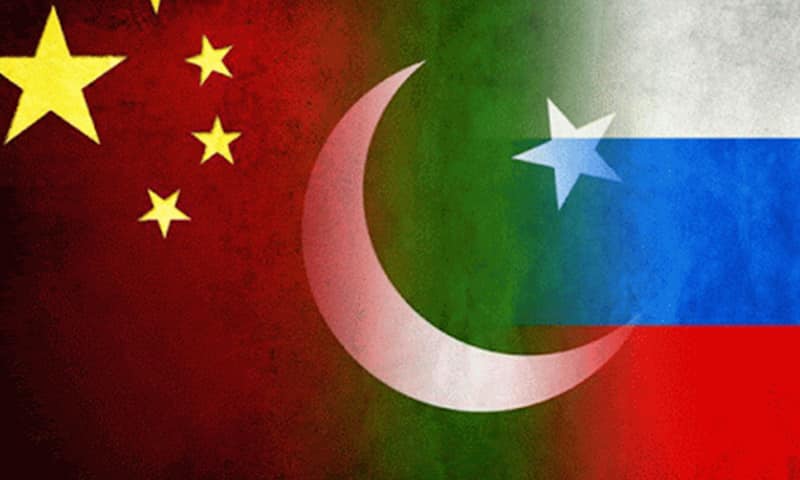By the end of the War on Terror, the United States of America relied on scapegoating Pakistan for its failures in Afghanistan. Now as the US moves away from the region, the Dragonbear is preparing to fill the void left behind. For Pakistan, this is a golden opportunity to realize its geopolitical and geoeconomic goals in the rising Eurasian century. The rapid changes in Afghanistan have reshaped Pakistan’s position in the geopolitical space.
Disenchantment from the US
Given Pakistani efforts in bringing the Taliban to the negotiating table, and the numerous sacrifices the country has made in the US-led War on Terror (83000 civilians died, between 1995-2020 more than 500 suicide attacks affected Pakistan), the cold-shouldering of Trump and the Biden administration has left Pakistan with no choice but to reciprocate in the same fashion. The AfPak border or the Durand Line is 2670 kilometers long, adjacent to Pakistan’s tribal belt which is enough of a factor to explain why peace in Afghanistan is so crucial for Pakistan, a point the US policymakers forget. For a long period of time, Pakistan sacrificed its sovereignty for the US national interests, and in return received harsh politicized treatment on forums like the Financial Action Task Force (FATF) and threats to be sanctioned.
It is a classic US move to shove the blame on regional countries, as it did in the Vietnam war, Cambodia was held accountable for US failures in the region. What Washington fails to realize is its next strategic failure which will be an outcome of its sidelining Pakistan in the region. President Joe Biden and Prime Minister Imran Khan have yet to break the ice; The less Washington engages with Pakistan, the more disconnected it becomes in the region, giving room to the Dragonbear to ramp up influence in the region. Pakistan has emphasized that it will no longer provide any bases to the US as it did in the past, and Russia has denied the US access to its bases in Central Asia. Instead of pursuing an active foreign policy agenda with Pakistan to seek greater cooperation, it seems Biden along with his policymakers are embroiled in confusion and ego.
Read More: US Failure in Afghanistan: Who to Blame?
As US-Indo ties grow, the more US becomes aligned with the smear campaign initiated by India towards Pakistan. When top diplomat Wendy Sherman visited Pakistan recently, she mentioned coming with a “narrow” scope in relations. Despite a high-level visit from the US, Prime Minister Imran Khan did not entertain this meeting. Pakistan’s National Security Advisor Moeed Yusuf urged Sherman on the importance of engagement with Afghanistan’s new interim government and highlighted Indian atrocities in Indian occupied Jammu and Kashmir.
On Sherman’s visit that carried no prospects for a “broad-based” relationship, prominent analyst, Dr. Hussain Nadeem from IPRI tweeted that it is perhaps best that both the US and Pakistan take a break from each other.
Pakistan now fully understands that, unlike the US, which is a trans-regional power with no direct stakes in the region, regional powers like China and Russia are reliable partners. Recent trends also suggest that the two are likely to remain synchronized in their efforts to stabilize the region instead of engaging in a power competition.

Pakistan and the Dragonbear synergy: Russia-Pakistan-China in the Eurasian spotlight
Pakistan has unapologetically pursued its strategic vision by realigning itself with China and Russia to fulfill its role as a ‘Pan-Eurasian Zipper’. There are several key areas upon which Russia-Pakistan-China (RPC) are more than willing to cooperate.
Given events in Afghanistan, RPC has given top priority to counterterrorism and the security of the region. Pakistan along with the Dragonbear is concerned about the burgeoning spillover effects coming from Afghanistan; The threat of Islamic State Khorasan (IS-KP) is becoming more and more evident with frequent recent bombing ever since the Afghan Taliban took power as the interim government. Pakistan is highly concerned as it faces the threat of a resurgent Tehrik-e-Taliban Pakistan (TTP) as its activities can damage Pakistan’s hard-earned stability. Likewise, Russia is concerned about militant activities in its underbelly as the memory of Chechen rebels is still fresh in Russia, so it is more than willing to counter IS-KP; China, that shares a border via the Wakhan Corridor, is also concerned about Afghanistan becoming a base for al-Qaeda linked East Turkestan Movement (ETIM). The RPC will thus utilize the best available platform, that is the Shanghai Cooperation Organisation (SCO) to strengthen capabilities to counter terror outfits in the region, and work towards a regional framework so that Afghanistan doesn’t get caught in the ‘conflict trap’.
Furthermore, earlier this year Pakistan expressed its tilt towards a geoeconomic identity. The Dragonbear is thus the best partnership Pakistan can seek to achieve its goals of Asian connectivity. China with its Belt and Road Initiative (BRI) and Russia with its Grand Eurasian Strategy are pursuing Pakistan’s links with Afghanistan as a means to attain economic benefits. Therefore, the RPC is more than willing to support stability in Afghanistan through regional cooperation. With Pakistan championing the CPEC project, China and Russia can access the Indian Ocean, more importantly with each stakeholder investing in the economic aspect of Afghanistan, the less likely any regional power will try to unilaterally dominate the region.
Through the Dragonbear synergy, Pakistan can intensify its relations with the Central Asian states as well. For example, the Pakistan-Afghanistan-Uzbekistan (PAKAFUZ) railway project that was signed in 2016 can eventually materialize. Moreover, Pakistan can take this opportunity to enhance its relations with Iran as well as it is a strategic partner to the Dragonbear with mutual interests in Afghanistan.

The most important aspect in this developing alignment is perhaps Pakistan’s shift from a US-dependent policy to a limiting US influence policy which falls in line with the ambitions of the Dragonbear. Both Russia and China are adamant in countering or limiting US influence to safeguard their interests. Currently, the US is partnering with India to counter China in the Indo Pacific via Quadrilateral Dialogue, and its bilateral relations have emboldened India to foster terrorism against Pakistan. While Russia-India relations have historic depth, on several occasions Russia has prompted India to rethink its policies. The region is in flux, with enormous opportunities for RPC to reset its status in the region, while the US shirks from its responsibilities as a superpower.
For Pakistan, its increasing relations with the Dragonbear are then dependent on how they come together to resolve the regional dilemmas emanating from Afghanistan. While Pakistan has expressed its ambitions as a Eurasian nation, it has still kept the room open for future collaborations with the US beyond Afghanistan as NSA Moeed Yusuf has emphasized several times.
Pakistan is more than willing to become a member of this multi-alignment framework as long as it is acknowledged for its efforts and contributions to regional peace without having to compromise upon its sovereignty.
Read More: Afghanistan’s Power vacuum and its implications for the Region






